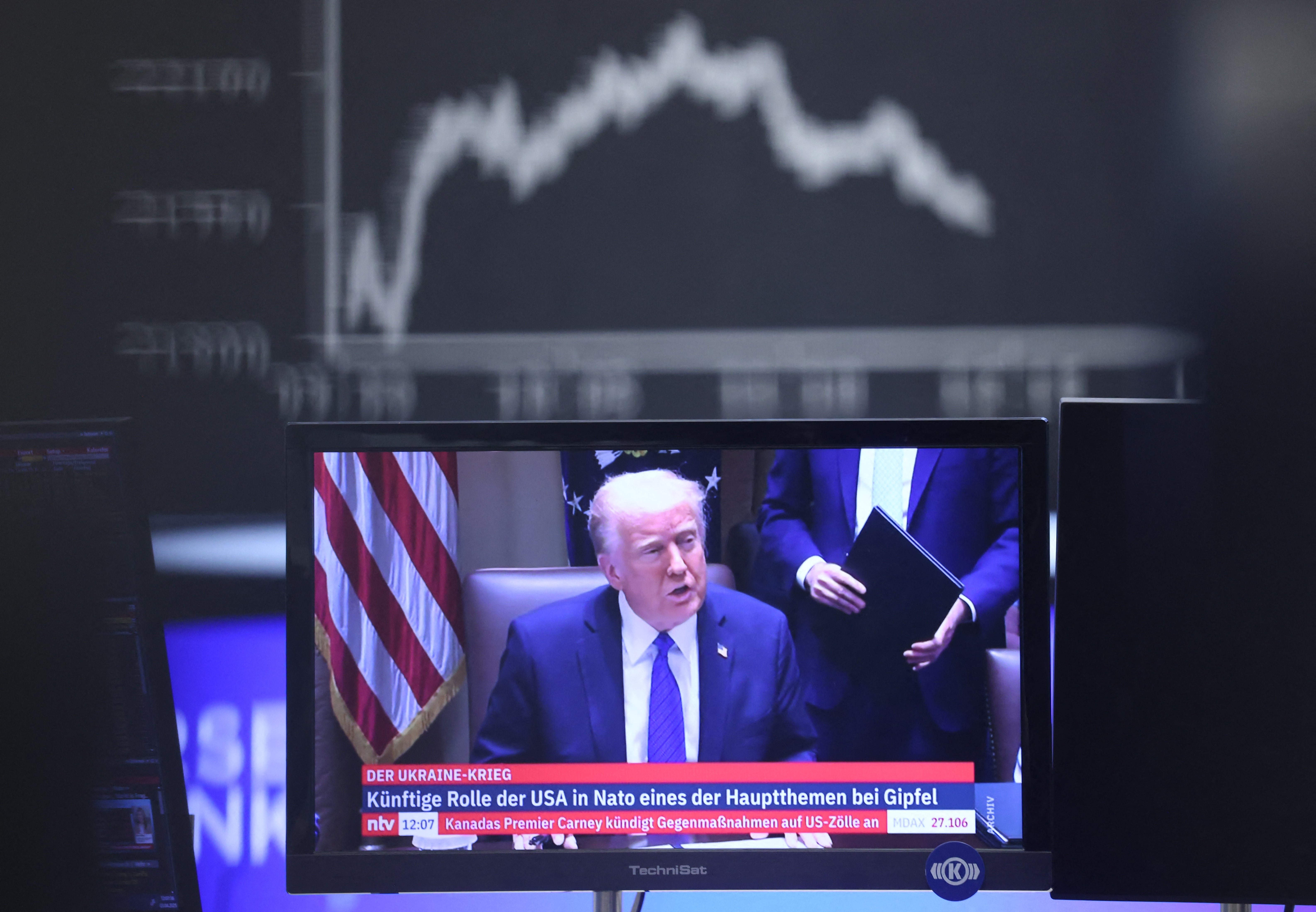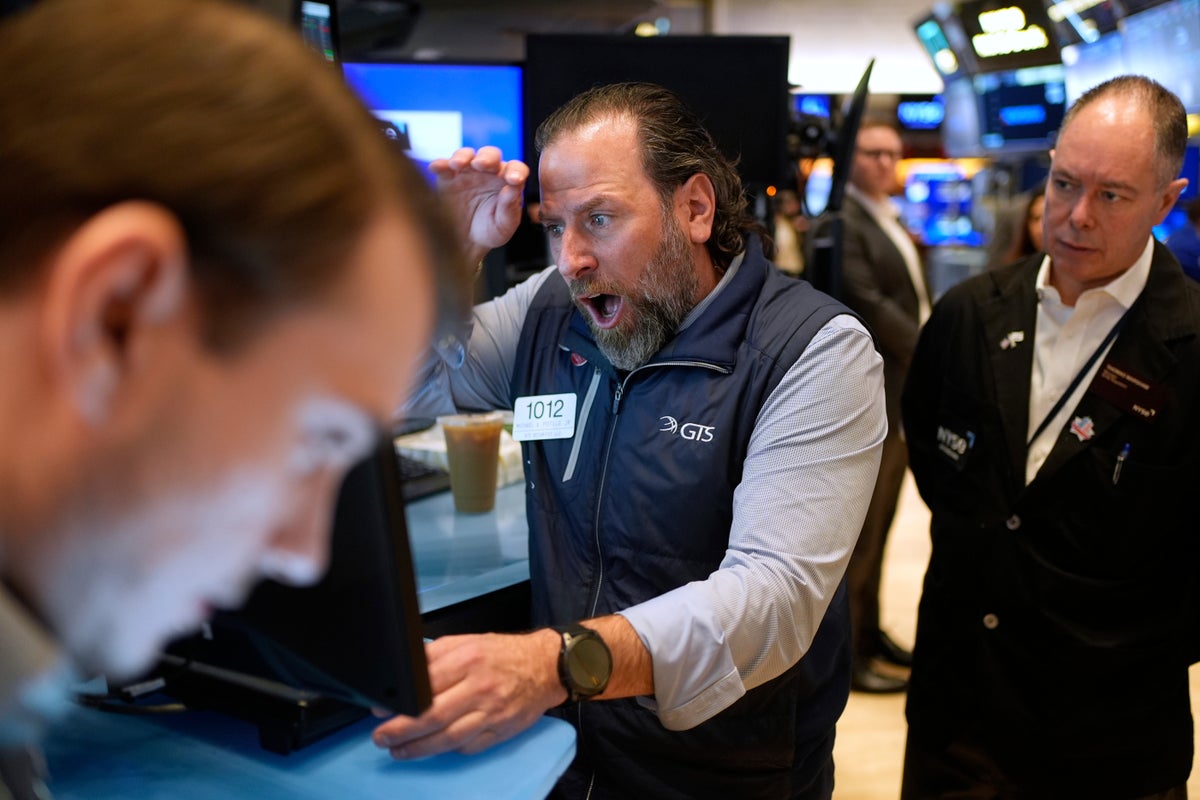The U.S. stock markets are taking a beating as investors fear the impact of President Donald Trump’s tariff plan.
Quickly after opening, the Dow Jones, the NASDAQ and the S&P 500 all took a dive. The NASDAQ had its worst point drop in a single day, closing at 1,050 points, or nearly 6 percent.
Investors sparked a sell-off a day after Trump announced his tariff plan that puts new levies on goods from nearly every country. Trump and his team have said the policy is necessary to make it fair for American manufacturers. But, experts have warned that his tariffs could have a massive negative impact on the economy. Tariffs are taxes on goods imported into a nation — but it’s often the consumer footing the bill and paying higher prices.
Before the market opened — but with the backdrop of dipped stock futures — Trump compared the new tariffs to a surgical procedure, writing on Truth Social Thursday morning: “THE OPERATION IS OVER! THE PATIENT LIVED, AND IS HEALING. THE PROGNOSIS IS THAT THE PATIENT WILL BE FAR STRONGER, BIGGER, BETTER, AND MORE RESILIENT THAN EVER BEFORE. MAKE AMERICA GREAT AGAIN!!!”
As the markets declined, White House officials defended the tariffs.
“Today, the world starts taking us seriously. Our workforce will finally be treated fairly,” Commerce Secretary Howard Lutnick said in a statement. Hours earlier he told CNN: “The world should stop exploiting the United States.”
Treasury Secretary Scott Bessent issued a statement: “The President’s historic actions will level the playing field for American workers and usher in a new age of economic strength.”

But hedge fund manager Bradley Wickens offered a different outlook, predicting Thursday was just the beginning of a long road ahead for the fallout of Trump’s tariff plan. “I think the market reaction has not yet accounted for what was announced last night,” he told the Wall Street Journal Thursday. “The true nature of how negative this is is going to take time to manifest itself during in April and May, as it all dawns on everyone that, ‘Wow, these [tariffs] are here for a long time.’”
Stocks of large restaurant chains also slid Thursday afternoon as their major imports are likely to be affected by the new levies, with Starbucks falling nearly 10 percent and Chipotle falling about 3 percent.
Retailers are also down as they brace for supply chain disruptions; shares in Lululemon and Nike each dipped 12 percent Thursday morning while Gap tanked 21 percent and Macy’s dropped 14 percent.
American employees in the auto industry could also soon feel the impacts of the new tariffs as Stellantis, which owns Jeep, Chrysler, and Dodge, announced it was halting production at its factories in Mexico and Canada asTrump’s 25 percent tariff on imported cars starts. About 900 U.S. employees are expected to be laid off, the automaker said Thursday. Stellantis stock was down more than 7 percent Thursday just before noon.
Home furnishing giants are also experiencing turbulence. Stock in Williams-Sonoma, parent company of Pottery Barn and West Elm, slid by more than 15 percent by Thursday afternoon.
Gary Friedman, CEO of luxury furniture retailer RH, reacted live to Trump’s tariff plan rollout Wednesday while on a conference call with analysts.
“Oh, s***. OK,” he said, according to CNBC. “I just looked at the screen. I hadn’t looked at it. It got hit when I think the tariffs came out. And everybody can see in our 10-K where we’re sourcing from, so it’s not a secret, and we’re not trying to disguise it by putting everything in an Asia bucket.” By Thursday afternoon, the company’s stocks had plunged nearly 40 percent.
Meanwhile, investors seem to be finding comfort in comfort foods. French fry producer Lamb Weston was up 10 percent while General Mills, Coca-Cola and Kraft Heinz each gained nearly 3 percent.
Some Americans fear that the reactions to the new tariffs are going to harm their retirement retirement savings — and some experts warn they might.
“For the small investor, the decline in value will be devastating, particularly for retired baby boomers,” Peter Ricchiuti, a professor at Tulane University’s Freeman School of Business, told Business Insider.
Georgia Taylor, founder of Tailored Wealth, told the Financial Times: “ Those near retirement must monitor their pensions closely. Withdrawing during market downturns can deplete funds faster, so seeking advice on a flexible withdrawal strategy is crucial. This highlights the growing need for financial planning to make pensions last longer.”
The leaders of the some of the U.S.’s largest trading partners have said they are already preparing reciprocal tariffs.
European Commission President Ursula von der Leyen called Trump’s decision a “major blow” to the global economy, adding Thursday: “We are now preparing for further countermeasures, to protect our interests and our businesses if negotiations fail.”
Canadian Prime Minister Mark Carney announced that his country plans to match the U.S.’s 25 percent tariff on imported vehicles: “We take these measures reluctantly. And we take them in ways that is intended and will cause maximum impact in the United States and minimum impact in Canada.”

